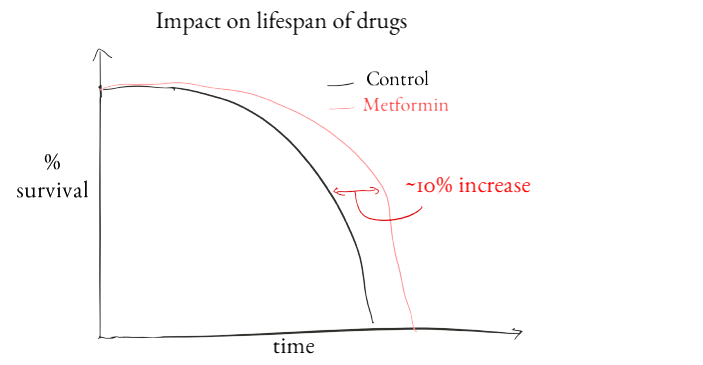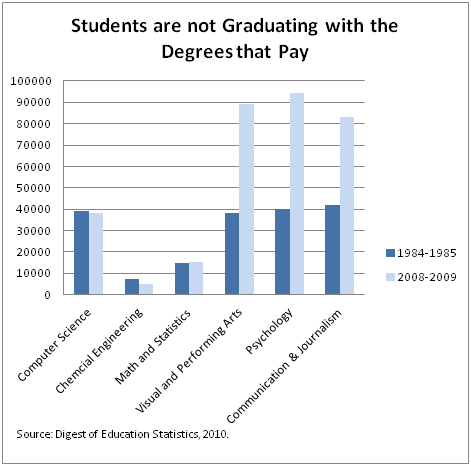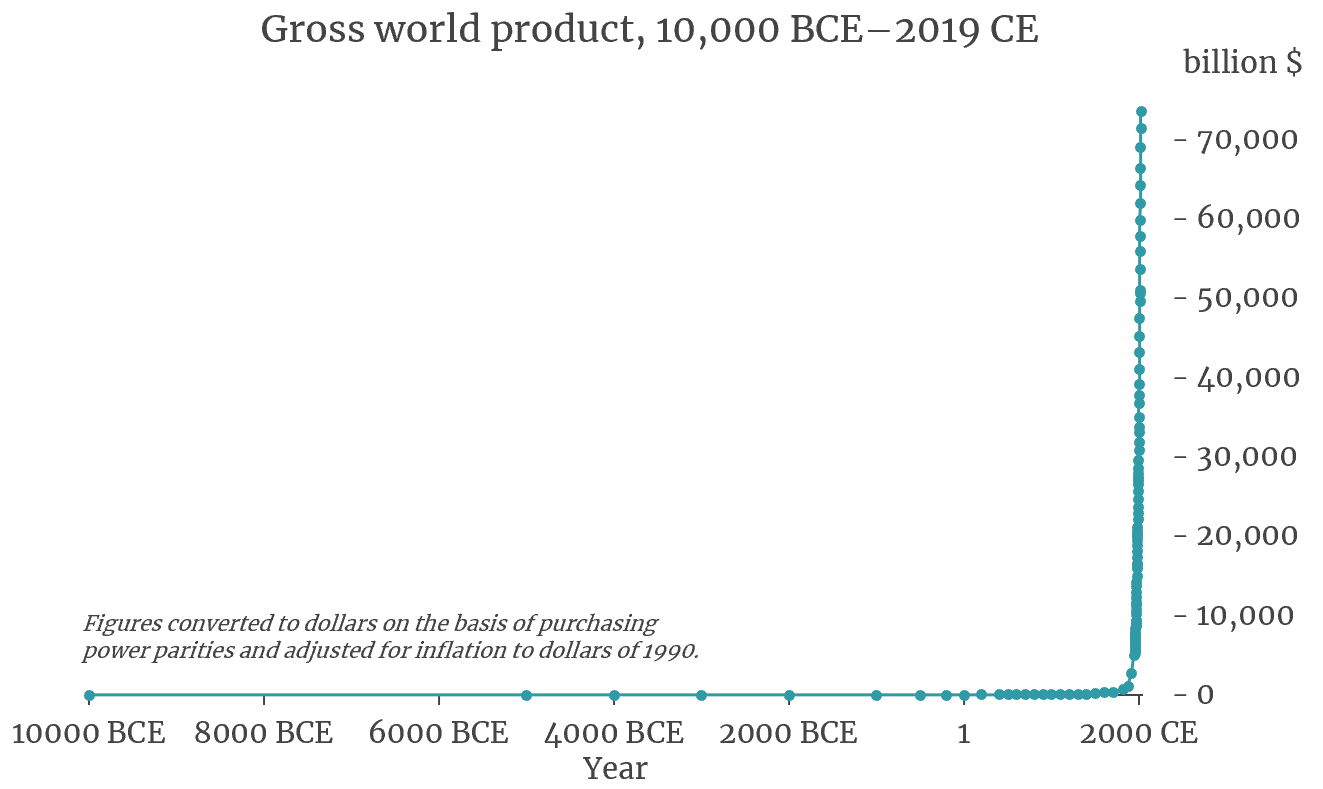What I learned in 2020
Every week, I send a newsletter that contains a collection of interesting links and ideas.
I think of this section as an open-sourced bookmarks tab that anyone can reference. Patrick Collison calls the links roundup “an underrated artifact.”
That’s why I’ve done the work of digging through blogs, scientific papers, and newsfeeds to select the most impactful ideas. I apply the Lindy test, which states that the longer something non-perishable has lived, the longer we can expect it to live.
These links are my humble suggestion for your own reading.
Sections:
- Memos
- Science
- Design
- Philosophy
- Education
- Economics
- Culture
- History
- Writing
✏️ Memos
Execution is more important than ideas: The term “million-dollar idea” describes how most people think wealth is created. It implies that you just need to wait for inspiration to strike and the rest will come easily. This excellent and underappreciated guide from Balaji Srinivasan explains why execution is more important than ideas. It describes the process of ranking ideas and how to use Fermi estimations for market sizing. I highly recommend reading if you’re considering whether to pursue a big project.
Memos for Twilio, LinkedIn, Twitch, Shopify, and more: A recently released treasure trove describing the rationale behind investments in popular companies. The memo is an underappreciated form of expression. For most people, the term “memo” brings up an image of dry corporate-jargon filled with platitudes. In reality, the best memos offer a clear and unique window into the author’s worldview. These documents are required reading for anyone interested in finding early-stage technology companies with growth potential.
Pixar Letter To Shareholders (1997): Shortly after the release of their first blockbuster (Toy Story), Pixar went public, becoming the highest-grossing IPO of the year. Steve wrote a letter to shareholders, outlining his vision for the fledgling studio. The most compelling part of the letter is the focus on positioning Pixar as a high-quality brand, right alongside Disney.
Truth Tobacco Industry Documents: This treasure trove of documents was collected by the University of Califonia San Francisco Library in 2002. It contains over 14 million documents that provide a window into the internal corporate documents of the largest tobacco companies. Unlike the propaganda that tobacco companies publish in the media, these documents offer a unique chance to understand how a complex organization makes decisions.
AT&T 1913 Annual Report: AT&T was to communications in the 20th century as Google and Amazon are to technology today. This annual report is a case study in effective writing. Plus, it’s an incredible look at how an early technology company flexed its ability to recruit and retain talent. Ten years after this report was written, AT&T would go on to found Bell Labs; one of the most successful research institutions ever created.
Don’t scar on the first cut: Corporate policies are often counterproductive — this is the best explanation I’ve ever seen that explains why. Don’t implement a policy when a story will do the job.
Jeff Bezo’s demonstrates the power of a well-structured narrative: It’s well known that Amazon has banned PowerPoint internally in favor of six-page narratives. Bezos claims that having employees write long-form essays helps to convey ideas more clearly. This policy has been in place for many years now, and all that practice shines through in this striking statement.
Dominic Cummings, Special Adviser to Boris Johnson, puts out a call for “weirdos”: I wasn’t familiar with Dominic before this post, and it seems like he is a polarizing figure. Nonetheless, I am absolutely fascinated by the content of this listing, which is highly unusual for a government position. It appears as though Mr. Cummings is no stranger to these types of writings; here is a 237 page (!!) essay he wrote on how politicians should receive education to prepare them for a career in government.
🔬 Science
New Kind of Science (2002): Cellular automata may provide clues to the structure of our universe. This link will be a rabbit hole of epic proportions for anyone unfamiliar with Stephen Wolfram and cellular automata theory. Simply put, cellular automata states that complex systems can emerge from very simple rules. For a great example of how this works, I highly recommend checking out John Conway’s Game of Life.
AlphaFold @ CASP14: It feels like one’s child has left home: A blogpost from biology researcher Mohammed AlQuraishi explaining the implications of deep learning on science. This article was originally published in 2018 after DeepMind (the team behind the technology) revealed their neural network called AlphaFold. Since then, AlphaFold has gone on to solve the problem known as “protein folding”, an incredibly important development for how we model the behavior of organic molecules.

There’s Plenty of Room at the Bottom: Feynman was an American physicist with a knack for making very difficult ideas seem fun. His collected works are among my favorite writings of anyone, ever. In this essay, he writes about the possibility of nanotechnology with a level of detail that shows off his incredible breadth of knowledge. Although this essay was written over 60 years ago, it’s still full of relevant concepts.
Cargo Cult Science: In 1974, Richard Feynman gave a commencement address at Caltech on the topic of pseudoscience. He lays out the following ideas:
- We look at the crazy ideas that people used to have about medicine, weather, natural phenomenon, and so forth and laugh about how ignorant they were.
- We still have crazy ideas about fields like criminal justice and reading scores that don’t seem to be working, yet we consider ourselves to be a scientific society.
His advice:
- Publish your results, even if they don’t match your expectations.
- Try to work in places that allow you to maintain scientific integrity, without fear of losing your organizational standing or financial support.
More is Different (1972): A description of the emergent phenomenon in our universe — this post explains how very simple rules can lead to complexity. For example, the rules that describe how atoms interact (particle physics) create the field known as chemistry. In turn, chemistry can be used to understand the fundamentals of biology. Practitioners at each level require an understanding of the fields whose rules are applied to their own. However, this doesn't mean that you can just learn the bottom levels like physics or math as a cheat code. Each new level of complexity has its own emergent phenomenon that requires inspiration and creativity to understand.
The Art of Doing Science and Engineering (1994): This book has the highest density of useful information that I’ve ever read. Richard Hamming was an engineer at Bell Labs and participated in the Manhattan Project with great thinkers like Von Neumann, Einstein, and Feynman. Hamming lays out practical principles for anyone interested in accomplishing great work during their professional career. Think of it as an extended version of his famous speech, “You and Your Research.” One of my favorite quotes from the book:
In science if you know what you are doing you should not be doing it.
In engineering if you do not know what you are doing you should not be doing it.
Cell Biology By The Numbers: My go-to response for anyone who wants to study science but “isn’t a numbers person”. This free PDF is a great way to develop an intuitive feel for numbers, including how to do back-of-the-envelope calculations. Since the book is broken into separate chapters, or “vignettes”, you can jump around easily based on the problem you’re trying to solve. This should be required reading for incoming biology majors — I know it would have helped me enormously when I was starting my academic career.
A comprehensive overview of longevity research: Laura Deming of The Longevity Fund put together a summary of aging: why it is important, what we believe causes it, and what we can do to slow it down. Some of the proposed ideas in this report seem like they are just around the corner from widespread adoption. Worth keeping an eye on.

Drugs to reverse aging: This article from Nature is a must-read for anyone interested in unconventional but plausible ideas. Getting familiar with the science behind aging is just the tip of a very interesting iceberg.
🎨 Design
The Future Isn’t What It Used To Be: Jobs spoke at the 1983 International Design Conference in Aspen about the future of computing. At the time he was leading the development of the Macintosh project, a rowdy band of rebels building the first mainstream computer with a graphical user interface. This talk covers a variety of topics, including Steve’s thoughts on the future of the computer industry and the benefits of sticking to a simple, minimalist design system.
Ten Things I Have Learned: Milton Glaser was an American graphic designer most well-known as the I Love New York logo's creator. This five-page transcript is taken from a talk he gave in London shortly before his death. It outlines ten rules that he learned through his career as a creative and businessman.
Geometric Illustrations by Leonardo Da Vinci: If you want to learn a subject, find a master to teach you. One of Leonardo Da Vinci’s many contemporaries and close friends was a mathematician named Luca Pacioli. Leonardo was fascinated with the idea of “squaring the circle”, a popular problem among intellectuals during his time period. As was common for Leonardo, he sought help from a master to improve his personal education: Luca.
In return for the geometry lessons, Leonardo illustrated a beautiful series of covers for Luca’s first major work, a textbook for use in the schools of Northern Italy. For several years, Leonardo and Pacioli lived together, blending art and mathematics to create the beautiful images below.

💎 Philosophy
The Philosophy of Ayn Rand: Whenever I want to dig deep into a particular philosophical view, I use the Stanford Encyclopedia of Philosophy. This website organizes writings from the world’s best philosophers into a single place. This particular article explores the works of Ayn Rand. Rand is best known as the inventor of objectivism; a moral philosophy focused on individual achievement and progress.
Randy Pausch Last Lecture: Achieving Your Childhood Dreams: Randy was diagnosed with liver cancer in 2007. After learning that he had less than a year of life left, he decided to record what he called “The Last Lecture.” This video (and the accompanying book), is worth a watch. In it, Randy shows how to deal with the big questions and talks about what makes a life and career fulfilling.
The Fable of the Dragon-Tyrant: What if death was a choice? The Fable of the Dragon-Tyrant is a philosophical thought experiment from a 2005 edition of The Journal of Medical Ethics. Studies have shown that we may be able to dramatically increase the health-span of humans. If we can stop death, don’t we have an obligation to do so?
Slate Star Codex: This is one of the most quietly influential blogs on the internet. My favorite posts include Staying Classy (about race in America), I Can Tolerate Anything Except The Outgroup (about the two-party system in politics), and SSC Gives A Graduation Speech. Oh, and there’s a book of his collected works too.
Meaningness: a word missing from our language: A website devoted to a question that philosophers have grappled with for centuries: what causes something to have meaning? Meaningness takes the form of a hypertext book, where chapters are linked through hyperlinks. Unlike a traditional book, it isn’t linear. Instead of reading it from beginning to end, readers are encouraged to pick a page and follow ideas that seem interesting.
The Straussian Moment: This essay from Peter Thiel is a fascinating blend of philosophy, religion, and history. In it, he lays out the case that as a society we have given up our passions in return for reduced conflict. The result is that no one thinks about anything anymore. This essay is a must-read for anyone looking to build a better understanding of Thiel’s worldview.
On The Shortness of Life: Your emotions should not control your actions. This document is one of the best examples of the Lindy effect in action. These concepts arise from Stoicism, a philosophy practiced by ancient Romans. Stoicism is focused on accepting that some things are outside of our control. Start with the document above from Seneca. If you’re craving more stoic wisdom, I highly recommend reading the works of Marcus Aurelius, a philosopher and Roman emperor who wrote his own self-reflections in a manuscript called Meditations.
Gmail cuts off emails at this point, but you can find the entire list on my page:
🍎 Education
The strengths of the academic enterprise: Universities are one of the best examples of the Lindy Effect in action. From the essay:
In the Western world, 66 institutions have enjoyed a continuously visible identity since 1530. Among those 66 are the Roman Catholic Church, the Lutheran Church and the Parliaments of Iceland and the Isle of Man. What makes these 66 so interesting —and I owe the knowledge of this fact to our President Dr. Berdahl— is that the remaining 62 are all universities!
The psychology of learning: Most people don’t reach their potential because they lack structured practice. This highly cited work from psychologist Edward Thorndike provides an in-depth review of the existing literature around various learning modes. It’s long, but chapter seven, titled The Amount, Rate and Limit of Improvement, is worth reading.
Literature review of Bloom’s Two Sigma Problem: Mastery learning is a cheat code for education. This fantastic literature review from José Luis Ricón explores the relationship between student performance and the teaching method used. The highest performing groups received both tutoring and Direct Instruction, a technique that separates learners by skill rather than age. If you are interested in learning a new topic, consider finding a relevant course that uses mastery learning for the best results.
College Has Been Oversold: This post from Alex Tabarrok of Marginal Revolution makes a case for subsidizing education in fields like microbiology, chemical engineering, and nuclear engineering.

This article is made more poignant by the fact that it was written in 2011. It’s no secret that higher education needs reform, but it just keeps lumbering on.
📊 Economics
World Values Survey: Every five years, a multi-national effort is launched to survey people from all over the planet. The result is the World Values Survey: a completely free resource that categorizes how people are motivated. This project is a fascinating blend of scientific and social observations that I haven’t seen anywhere else. Whenever I want to understand a country I’ve never been to, this is where I start.
Wtf happened in 1971?: One of the big questions in the progress studies community is whether or not we are experiencing slowing technological growth. This website, helpfully titled “Wtf happened in 1971” assembles a collection of interesting data that seems to correlate slowing economic growth with the year 1971.
The Nature of the Firm: This paper includes the best description of entrepreneurship that I’ve ever seen. Written in 1937, it discusses the reasons why companies choose to form in the first place, rather than allowing the market to decide prices between individuals. Modern business is based on the assumptions laid out in this paper, although many of us have forgotten that they once needed to be stated in plain language.
The new open-source economics: Open-source software is the invisible infrastructure that powers the internet. Recent books, including Working in Public from Stripe Press, have attempted to shine light on this underappreciated public good. This TED talk from Harvard Law professor Yochai Benkler describes how and why people feel motivated to contribute to websites like Wikipedia. Fifteen years later, the funding mechanisms of open-source software are still not well understood. However, this talk provides an underrated framework for valuing software created by a community instead of an individual. Add this to your podcast backlog.
How to Fund Public Goods: A great summary explaining one of the most exciting topics no one is talking about. Quadratic funding is a mechanism described in a new whitepaper published by Vitalik Buterin, creator of Ethereum. Understanding how to effectively fund public goods is a key component of the ongoing development of open-source projects like Ethereum, Wikipedia, and Linux.
Modeling the Human Trajectory.
This lengthy post is a fascinating analysis of the history and projected growth of human economic output. Dealing with the recent explosion in GDP is one of the difficulties when trying to forecast economic growth.

Most projections make the mistake of assuming a steady growth rate. In reality, recent growth has been super-exponential. Extrapolate this trend out a few decades and our projections go to infinity. Clearly this is a flaw in our forecasting ability, but it does lend some clues. Takeaways:
- If the patterns of history continue, then some sort of economic explosion will take place again, the most plausible channel being AI.
- The fact that our models forecast an explosion of growth is a sign of instability in the human trajectory.
🛕 Culture
St. John’s College Reading List: The first time I saw this list I was over the moon. St. John’s College has been maintaining an updated Great Books list since 1937. The curriculum is broken down by grade level, but there isn’t a wrong place to dig in. This collection is a cheat sheet for finding books worth reading.
Penguin Classics Reading Guides: Another fantastic reading list. There are too many good books to waste your time reading most of the stuff that is published today. Penguin Classics is my go-to whenever I’m looking for a recommendation. This page is a curated list of reading guides for some of the most popular books in their collection, including 1984, Pride and Prejudice, and more.
Slouching Towards Bethlehem (1967): A first-person account of the counterculture movement on Haight-Ashbury in the late 1960s. Written by Joan Didion after a series of trips to The Haight, it provides a fantastic window into the unique culture of San Francisco. At the time, Haight-Ashbury was the center of the free-wheeling drug culture associated with the hippie movement. Joan’s stories include LSD-dropping five-year-olds, a drug-dealer named Deadeye, and a pair of high school runaways named Jeff and Debbie.
My favorite quote:
Almost everybody I meet in San Francisco has to go to court at some point in the middle future. I never ask why.
Chasing Bubbles: The story of Alex Rust, a 25-year-old farm boy turned day trader who abandons his yuppie life to travel around the world. Adventure is alive and well for those willing to seek it. Available for free on YouTube.
Works in Progress: I love this take on what a modern magazine could be. Works in Progress is a digital publication that releases new stories in issues, just like a print magazine. The first issue includes topics like culture, economics, science, and politics. Getting a new magazine issue in the mail was the highlight of my month as a child. This website makes me feel that same excitement. Keep an eye on this one.
Bari Weiss Resignation Letter: There is something strange happening inside of The New York Times. Read this letter closely and you’ll hear the voices of other journalists who share Bari’s sentiments but without the means to go independent.
Twitter is not on the masthead of The New York Times. But Twitter has become its ultimate editor. […] For these young writers and editors, there is one consolation. As places like The Times and other once-great journalistic institutions betray their standards and lose sight of their principles, Americans still hunger for news that is accurate, opinions that are vital, and debate that is sincere. I hear from these people every day.
Geeks, MOPs, and sociopaths in subculture evolution: A Thing™ is cool when it’s only known to a small group. These small groups are the “geeks” - they care very passionately about the Thing™ and help advance it. Eventually, the Thing gets discovered by a broader audience - the “mops”. They’re into the thing, but they mostly show up to have a good time. Eventually, the Thing™ gets turned into a mainstream thing and the cycle starts over. This post is a fascinating breakdown of how we assign cultural significance to ideas.
The Social Subsidy Of Angel Investing
Angel investing is risky and often results in your money being locked up for 10+ years (if it doesn’t implode). This essay outlines how tight-knit communities like San Francisco solve the cold-start problem of early-stage investing. “The social rewards of angel investing solve an important chicken-and-egg problem in early-stage fundraising that financial rewards does not.”
Citizenship in a Republic: This transcript from Teddy’s Roosevelts “Man in the Arena” speech is worth reading in its entirety. The passage that made the speech famous appears about 1/4 of the way down the page:
It is not the critic who counts; not the man who points out how the strong man stumbles, or where the doer of deeds could have done them better. The credit belongs to the man who is actually in the arena, whose face is marred by dust and sweat and blood; who strives valiantly; who errs, who comes short again and again, because there is no effort without error and shortcoming; but who does actually strive to do the deeds; who knows great enthusiasms, the great devotions; who spends himself in a worthy cause; who at the best knows in the end the triumph of high achievement, and who at the worst, if he fails, at least fails while daring greatly, so that his place shall never be with those cold and timid souls who neither know victory nor defeat.
The President and The Press (1961). A recording of a speech given by John F. Kennedy to the American Newspaper Publishers Association. It is refreshing to hear from a senior politician who is both articulate and understanding. In this nineteen-minute speech, Kennedy reinforces the freedom of the press, while reminding newspaper executives of their responsibility to uphold national security. This speech was recorded during the height of the Cold War. Kennedy masterfully discusses the situation the country is facing and the role of the press in selecting stories that do not betray American interests to overseas threats. This is what politics is about.
⌛️ History
A Colorized Photo of Nine Reigning Kings: This photo, taken in 1910, is one of the only surviving images of 20th-century monarchs gathered in the same room. It was shot in Windsor Castle before the funeral of King Edward VII. Shortly after this photo was taken, World War 1 broke out.
The 1870 Census: Statistical Atlas of the United States: This is everything a government document should be: informative, well-organized, and beautifully illustrated. In the 1800s, The United States began collecting, organizing, and distributing information across a variety of topics, including population, geography, wealth, demographics, disease, and more.

Isaac Newton’s Notebook: When Isaac Newton first enrolled at Trinity College in 1661, he kept a notebook that gives us a glimpse into the mind of a young genius. One section, in particular, titled Qu[a]estiones quaedam Philosophiae or “certain philosophical questions”, is a famous example of his wide-ranging interests. In the notebook, Newton asks basic questions like “what is heat?” and ponders the movement of celestial bodies. I love notebooks like this, scribbles and all, because they show the process for creation in it’s raw and unpolished form. Luckily, all 4,000 pages have been digitized and made available online for anyone to learn from.
✉️ Writing
How to write in plain English: Effective communication never goes out of style. I keep this guide pinned and reread it when I catch myself falling into bad habits. If you enjoyed this, I highly recommend two books:
- On Writing by Stephen King
- On Writing Well by William Zinsser
1,000 True Fans: This essay is one of the best arguments for why you should create content online. The internet allows us to connect with millions of people with the click of a button. The smallest niche, multiplied over such a large number, can be enough to make a living. Instead of worrying about growing at all costs, consider what it would take to find 1,000 people who will pay for your work. If this idea strikes a chord with you, I recommend this post from Daniel Gross called The Power of Ten Playbook.
Financially independent writers agree that mornings are the best: Gwern.net is a hidden treasure of the internet. In this essay, he breaks down the common writing habits across writers with enough money to choose their own schedules. If you’ve been trying to develop a consistent writing habit, this post breaks down the different strategies and provides justification as to why they may work.
🔌 Technology
How the Bitcoin protocol actually works: This detailed technical primer from Michael Nielsen provides the best explanation of the Bitcoin protocol that I’ve ever read. Instead of focusing on the applications or relying on hand-wavy jargon, Michael takes a step back and explains how the underlying protocol works. Bookmark this page for a refresher anytime someone brings up Bitcoin at the Thanksgiving dinner table.
As We May Think (1945): The article that inspired the personal computer. Written by the man who led the United States R&D efforts during World War II, this essay is a cornerstone of internet history. It lays out a compelling picture of a world where humans are augmented by a “memex”; a machine that extends and connects knowledge across the globe. This essay inspired an entire generation of thinkers, including the internet pioneer Doug Engelbart. If you’re looking for inspiration for your next project, start here.
How To Build Effective APIs: Understanding how to build useful APIs is essential for anyone interested in a career in software development. This piece from Increment, Stripe’s engineering magazine, covers how the payments giant creates human-centered APIs. Since APIs attract a different set of users than traditional software products, you can’t rely on common techniques like user interviews or A/B testing. Instead, they recommend alternatives like creating a friction log or dogfooding. If you’re interested in effective API design, this entire issue is worth reading.
Shape Up: A Guide to Product Development: This excellent handbook is written by the team at Basecamp, known for their distinctly contrarian approach to software development. Shape Up is a thorough guide for anyone overwhelmed with constant scrum ceremonies and stand-ups at work.
There’s No Fire Alarm for Artificial General Intelligence: Technological changes tend to happen slowly, then all at once. We tend to look for linear changes, but fail to realize that non-linear shifts in the world are just as common. This essay is worth reading, if only to make you reexamine your own biases. If there is smoke in the room you’re in, but no one is reacting, will you have the independence of thought to yell “fire!”
Internet Search Tips: Google-Fu is a superpower. 90% of my job seems to be knowing how to find things quickly on the internet. This post is from Gwern, one of the best pseudo-anonymous blogs on the internet. It breaks down expert-level tips for leveling up your search skills. Some big tips:
- Add jargon: technical terminology that helps to return specific results.
- Use Twitter’s advanced search to find specific references from real people.
- Dealing with paywalls is necessary in today’s increasingly commercialized web.
Thanks for reading. If you enjoyed this list, feel free to subscribe. I send a newsletter every Sunday with my top finds from the week, as well as a weekly essay for subscribers.